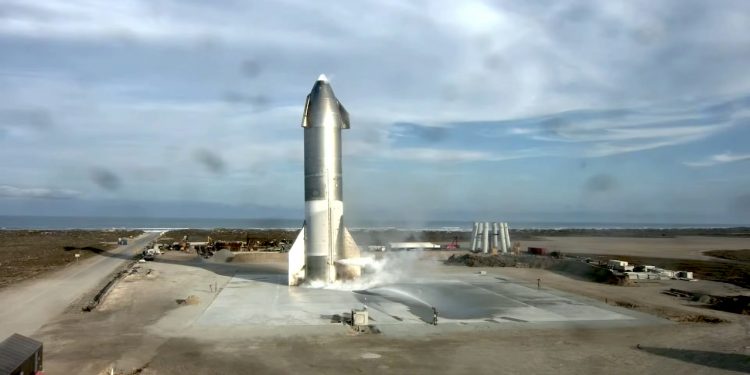San Francisco: After four unsuccessful attempts, Elon Musk-run SpaceX successfully managed to land its high-altitude Starship prototype rocket, intended to use to land astronauts on the moon and send people to Mars, for the first time on Wednesday.
All four previous high-altitude prototypes exploded upon attempting to land — either on, shortly before, or moments after the touchdown.
“Starship landing nominal!” Musk tweeted about seven minutes after SN15’s touchdown.
Musk has said the SN15 rocket contained “hundreds of design improvements” over past high-altitude prototypes, which were all destroyed during explosive landing attempts.
Starship SN15 lifted off at 6:24 PM ET from SpaceX’s Boca Chica, Texas facilities, soaring more than 6 miles in the sky to test in-flight maneuvers, The Verge reported.
As it reached peak altitude, SN15’s three Raptor engines gradually shut down to begin a horizontal free-fall back to Earth. Nearing land, two engines reignited to execute a complex “landing flip maneuver”, where the rocket reorients/repositions itself vertically ahead of a soft touchdown, the report said.
SpaceX’s Starship system is made for sending humans and up to 100 tons of cargo to the Moon and Mars.
The 16-story-tall high-altitude prototypes like SN15 represent just the top half of Starship. The bottom half will be a towering “super-heavy” booster that will help launch Starship’s top half before returning back to land.






































